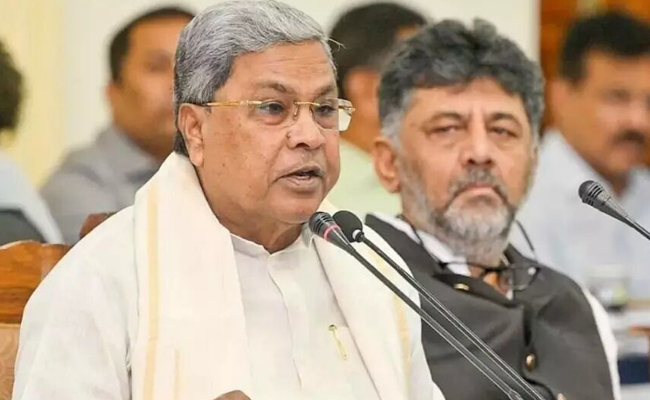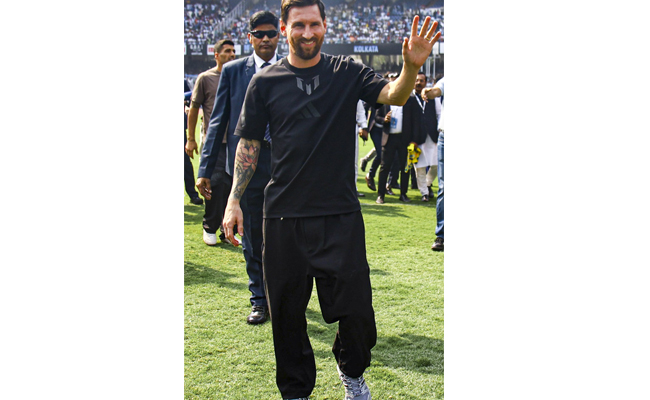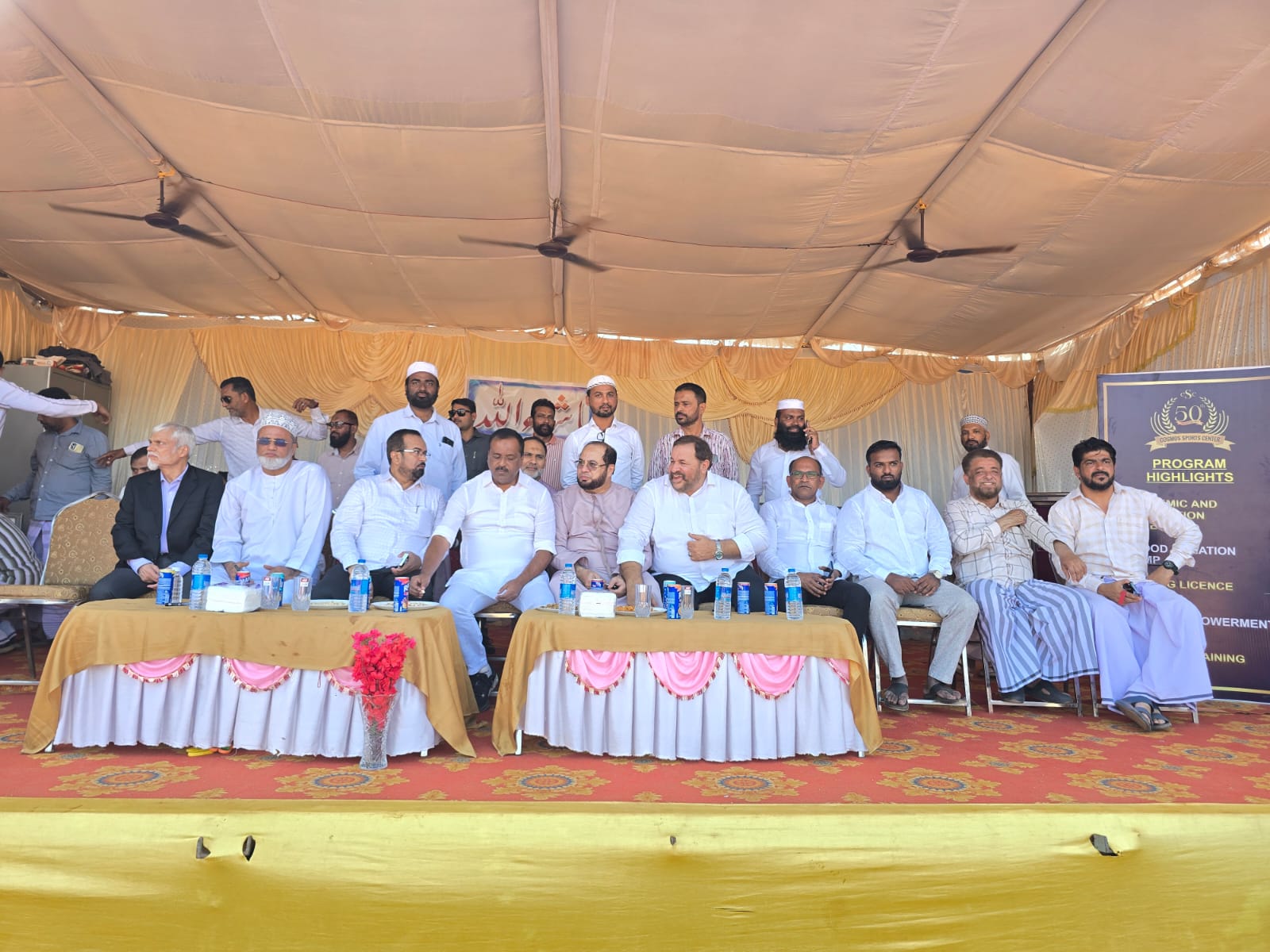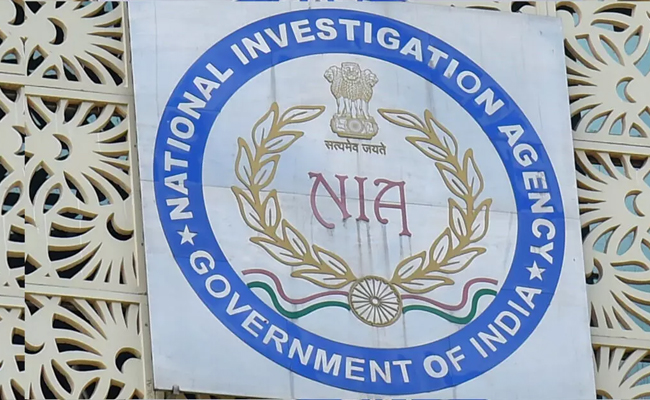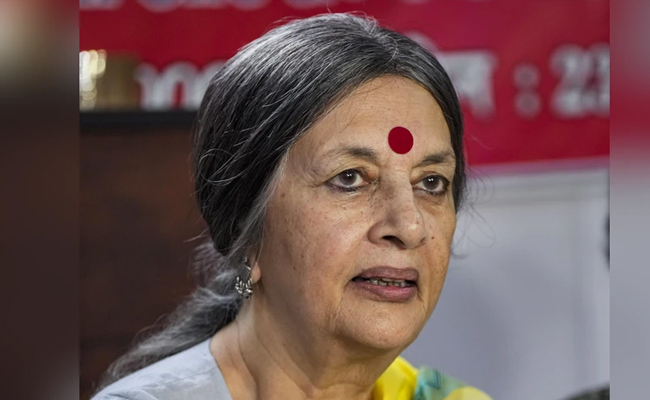Bengaluru (PTI): Karnataka Chief Minister Siddaramaiah on Thursday requested the 16th Finance Commission to recommend capping of cesses and surcharges at five per cent of gross tax revenue, and anything exceeding that should be a part of the divisible pool.
In his address to Chairman of the 16th Finance Commission Arvind Panagariya and its members at a meeting here, he also requested the panel to recommend that vertical devolution should be at least 50 per cent of the divisible pool.
All non-tax revenues of the Centre should be included in the divisible pool of taxes by bringing the necessary Constitutional amendment, Siddaramaiah said.
The Chief Minister said economically advanced States are committed to supporting poorer States, but this should not come at the expense of their own residents or economic efficiency.
The Commission needs to carefully examine the impact of extremely high emphasis given to equity on the incentives of well performing states.
"Moreover, the taxpayers of such states expect their taxes to work for them. This creates public trust. The Finance Commission therefore needs to do a tightrope walk while balancing equity with efficiency and performance", Siddaramaiah said.
Due to the disproportionate weightage given to equity by the 15th Finance Commission, Karnataka and similarly placed States ended up getting penalised for their good performance, both fiscally and demographically, the Chief Minister said.
Noting that cesses and surcharges are not part of the divisible pool, the Chief Minister said over the years, the Union Government has increased its reliance on them.
This has led to the divisible pool not growing in the same proportion as the Gross Tax Revenue, he said. This has caused substantial loss to all the States.
The loss to Karnataka on account of the non-sharing of cesses and surcharges from the divisible pool is Rs. 53,359 crore during the period 2017-18 to 2024-25, according to him.
The Chief Minister said reduction in central financial transfers is placing severe limitations on the ability of the States to invest in physical and human infrastructure, adding, this issue must be addressed urgently.
"Economically advanced States are committed to supporting poorer States, but this should not come at the expense of their own residents or economic efficiency," Siddaramaiah said. "A larger proportion of resources generated by the States should be shared with them."
He requested the Commission to take a bold view and approach, whereby equity considerations are balanced with sufficient reward for efficiency and performance.
Karnataka recommends that 60 per cent of contribution of a state to the divisible pool, for inter se allocation among states, should be given to that state, Siddaramaiah said.
Karnataka, the Chief Minister said, has been central to India's growth story, adding, it contributes approximately 8.4 per cent to the national GDP with only about five per cent of the population. The State ranks second in total GST contribution to the country.
Despite Karnataka's substantial contribution of about Rs four lakh crore to the Gross Tax Revenue of the Union every year, the state gets about Rs 45,000 crore in the form of devolution and about Rs. 15,000 crore grant-in-aid.
"This means that for every rupee Karnataka contributes, only 15 paise is returned to the state," he pointed out.
The Chief Minister said Karnataka requires greater devolution by the Centre as it faces regional imbalances, especially in the Kalyana Karnataka region, and the challenges of urbanisation.
Bengaluru, Siddaramaiah said, needs an investment of Rs. 55,586 crore over the next five years out of which the State requested for a grant of Rs 27,793 crore.
Similarly, for the equitable development of the Kalyana Karnataka region, the State is investing Rs 25,000 crore and requested a matching grant of Rs.25,000 crores over five years from the 16th Finance Commission.
To ensure effective disaster mitigation and timely relief and rehabilitation measures in the highly vulnerable region of Western Ghats, the State requested a grant of Rs.10,000 crore.
According to him, the 15th Finance Commission’s award reduced Karnataka’s share sharply from 4.713 to 3.647. This has led to a loss of Rs. 68,275 crore during the five-year period from 2021-26, he said.
The Finance Commission was conscious of the drastic cut Karnataka received and recommended state specific grants of Rs.11,495 crore, the Chief Minister said, adding, the Government of India, however, has not accepted the recommendation.
"So, Karnataka was deprived of these grants as well. The total of all the losses amount to Rs 79,770 Crores during the 15th Finance Commission period,", Siddaramaiah said.
Karnataka, he said, has seen a revenue transfer of Rs 35,000-40,000 crore per year to other States, amounting to 1.8 percent of its GSDP, during the 15th Finance Commission period.
"The figure is astounding because the net transfers outside of Karnataka amount to about 50 to 55 percent of the total revenues it generates."
Let the Truth be known. If you read VB and like VB, please be a VB Supporter and Help us deliver the Truth to one and all.
Mumbai (PTI): In view of Argentine superstar footballer Lionel Messi's visit to Mumbai on Sunday, the city police are implementing stringent security measures, like not allowing water bottles, metals, coins inside the stadiums and setting up watchtowers to keep an eye on the crowd, officials said.
The police also said taking extra care to avoid any stampede-like situation and to prevent recurrence of the chaotic situation that unfolded in Kolkata during Messi's visit on Saturday as thousands of fans protested inside the Salt Lake stadium here after failing to catch a clear glimpse of the football icon despite paying hefty sums for tickets.
Messi is expected to be present at the Cricket Club of India (Brabourne Stadium) in Mumbai on Sunday for a Padel GOAT Cup event followed by attending a celebrity football match. He is expected to proceed to the Wankhede Stadium for the GOAT India Tour main event around 5 pm.
"In view of Lionel Messi's visit to Mumbai, the police are geared up and have put in place a high level of security arrangements in and around the stadiums located in south Mumbai. Considering the chaos that prevailed in Kolkata and the security breach, we have deployed World Cup-level security arrangements at Brabourne and Wankhede stadiums," an official said.
Expecting heavy crowd near the stadiums during Messi's visit, the city police force has deployed more than 2,000 of its personnel near and around both the venues, he said.
As the Mumbai police have the experience of security 'bandobast' during the victory parade of ICC World Cup-winning Indian team and World Cup final match at the Wankhede Stadium, in which over one lakh cricket fans had gathered, we are prepared to handle a large crowd of fans, he said.
"We are trying to avoid the errors that occurred in the past," the official said.
There is no place to sneak inside the stadiums in Mumbai like the Kolkata stadium, according to him.
The police are also asking the organisers to provide all the required facilities to the fans inside the stadium, so that there will be no chaos, he said, adding the spectators have purchased tickets in the range of Rs 5,000 to 25,000. After paying so much of amount, any spectator expects proper services, while enjoying the event, he said.
The police are expecting 33,000 spectators at the Wankhede Stadium and over 4,000 at Brabourne Stadium. Besides this, more than 30,000 people are expected outside and around the stadiums just to have a glimpse of the football sensation, he said.
The organisers responsible for Messi's India visit recently came to Mumbai to discuss security arrangements. During the meeting, the Mumbai police asked them not to take the event lightly, according to the official.
After those requirements were fulfilled, the final security deployment was chalked out, he said.
Police has the standard procedure of the security arrangements inside the Wankhede Stadium, where people are barred from taking water bottles, metals objects, coins. Police are setting up watch towers near the stadiums and there will be traffic diversions, so that there is maximum space available to stand, according to the official.
Police are also appealing to the spectators to use public transport service for commuting and avoid personal vehicles to reach south Mumbai.
To avoid any stampede-like situation, police are also taking precautionary measures and will stop the fans some distance ahead of the stadium and public announcement systems will be used to guide the crowd. Barricades will be placed at various places to manage the crowd.
In case the crowd swells up beyond expectation, the police will divert people to other grounds and preparations in this regard underway, he said.
Additional police force has been deployed in south Mumbai to tackle any kind of situation, he said.

